
The FrenchMeanwhile, by the late 1600s, France rivaled Spain in the mercantilist sweepstakes. Voyages down the Mississippi River from French bases in Canada by explorers such as Joliet, Marquette, and La Salle, and subsequent French claims to the vast lands drained from the west by the Mississippi,which they dubbed Louisiana (and which included all of present-day Oklahoma except the Panhandle) in honor of their dictatorial monarch, Louis XIV-helped establish this enhanced French power. From the 1718 founding of New Orleans at the mouth of the Mississippi into the Gulf of Mexico, French traders and explorers flocked northwest through Oklahoma rivers in search of furs. The French posed a grave threat to Spanish hegemony over present-day Oklahoma and, indeed, the entire western Mississippi River Valley. Their men proved to be active and vigorous travelers along rivers such as the Arkansas, Red, Canadian, Grand, and Verdigris. They formed alliances with influential Indian tribes such as the Comanches in the Southern Plains and the Wichitas in eastern Oklahoma, and in fact did not hesitate to intermarry with Indian girls. They also traded a galaxy of items to the Indians, including clothing, tools, and trinkets, and-unlike the Spanish-weapons, ammunition, and whiskey. Gradually, the French parlayed these practices into a loose control over most of present-day Oklahoma and the western Mississippi watershed. This ended, temporarily, in 1763, as England defeated the combined forces of Spain and France in the sprawling mercantilist Seven Years War, whose North American theater gained the name of the French and Indian War. That vast conflict exhausted all of its participants, including the English, who demanded the ceding of Florida by Spain.
Read the entire Oklahoma story in John J. Dwyer's Media The Oklahomans: The Story of Oklahoma and Its People volume 1 of a 2-part series on the 46th state and the people who make this state very special. |

|
|
0 Comments
Our epic new OKLAHOMA GOLD! podcast introduces you to two of Oklahoma’s greatest heroes and founding “grandparents,” the Cherokee Romeo and Puritan Juliet, Elias Boudinot and Harriett Gold. He barely saw Oklahoma and she never did, yet their mark on us endures today, not least through the towering love they shared that overcame dangerous and powerful obstacles. Join John and KTOK/iHeartRadio star Gwin Faulconer-Lippert for a story of love, loss, and unvanquishable faith. It’s the 52nd original episode of our weekly OKLAHOMA GOLD! radio program and podcast. Go HERE to listen to them all! Future episodes explore more great heroes, events, and movements of Oklahoma History. https://youtu.be/IX8OqHVwF7M
The mighty Elias Boudinot. His legacy, co-crafted by his first wife Harriett Ruggles Gold, the great love of his life, demonstrates how in the long view of history, one person, though imperfect and fraught with conflict, did and can shape the destiny of Oklahoma for the better in a comprehensive fashion affecting every part of an individual’s and a people’s life. 
Harriett Gold. “We have vowed, and our vows are heard in heaven,” she declared. “Color is nothing to me; his soul is as white as mine; he is a Christian, and ever since I embraced religion I have been praying that God would open a door for me to be a missionary, and this is the way.” Though she never set foot in Oklahoma, her stainless Christian testimony and the deeds of her surviving family members helped shape the state even into the 21st Century. 
To Marry an Indian: The Marriage of Harriett Gold and Elias Boudinot in Letters, 1823-1839, edited by Theresa Strouth. It contains the letters of Harriett Gold and Elias Boudinot during their dramatic interracial courtship. 
Son of Elias and Harriet Gold Boudinot, who became a leader among the Cherokees, a soldier and their delegate to the Confederate Congress during the War Between the States, and the pioneer whose eloquent voice birthed the nationwide Boomer movement that led to Oklahoma statehood. 
Many thanks to Atwoods Ranch and Home, a farm and ranch supply company based in Enid, Oklahoma, for their support of the Red River Institute of History and OKLAHOMA GOLD! Please support them as you are able! Wherever you are, you can order online from thousands of quality products on their terrific website HERE. Atwoods also has 66 stores in 5 states: Arkansas, Kansas, Missouri, Oklahoma, and Texas. In addition to farm and ranch supplies, Atwoods stores sell clothing, lawn and garden items, tools, hardware, automotive supplies, sporting goods, pet supplies, firearms, and seasonal items. Read the full story at Cherokee Romeo & Puritan Juliet – Podcast, from Oklahoma History, with John Dwyer
We Were a Happy PeopleTribes who lost their land and sovereignty left eloquent testaments to their trials. An 1895 Cherokee delegation to the federal government in Washington, D.C.… Read the full story at John Dwyer’s “The Oklahomans”.
Toadsuck, Texas native William Henry “Alfalfa Bill” Murray provides lasting evidence that a roughhewn frontier country known as Oklahoma once existed. Murray…
Read the full story at John Dwyer’s The Oklahomans
|
John Dwyer's Oklahoma HistoryAuthor John Dwyer takes us on a voyage through time, to discover Oklahoma is ways we've never fully understood. The hardbound pictorial of volume 1 is available for a limited time at up to 40% off, using this link.
Archives
January 2024
Novelist and Oklahoma native Ralph Ellison said, "You have to leave home to find home", an apt description of the journey of John Dwyer, author and general editor of The Oklahomans. The Dwyer family roots were firmly transplanted from Ireland to Oklahoma by John's great-grandfather and grandfather, the latter who settled in Oklahoma City in 1909, just two years after Oklahoma achieved statehood. Although born in Dallas, TX, John was relocated to Oklahoma when his widowed mother returned to her home when he was two years old.
It would be on Oklahoma soil that his mother instilled in him his love for history, and coupled with his unusually creative imagination, it soon became apparent that John not only liked to hear great stories of legend and history, but to make up his own as well. It would be out of a sense of divine purpose that he would use that creativity in response to a higher calling in the years to come. John began a career in journalism during his high school days when he served in a variety of roles, including news and sports reporter, for the Duncan Banner, a daily newspaper in his small Oklahoma hometown. He was the youngest sports editor in the newspaper's history by the time he attended the University of Oklahoma on a journalism scholarship. He graduated in 1978 with a bachelor of arts and sciences degree in journalism. Dwyer further developed his journalistic skills in radio as a play‐by‐play football and basketball announcer for several radio stations. He won the coveted position of sports director for the University of Oklahoma's 100,000 watt KGOU‐FM radio station. For seven years, he provided live, on‐air reports to America's largest radio networks of University of Oklahoma college football games. Except for a year in England during 6th grade, John lived in the Sooner State for 28 years before returning to Dallas in 1986 to attend Dallas Theological Seminary where he earned his Master of Biblical Studies. While there, Dwyer worked part time on the sports staff of The Dallas Times Herald, which at the time owned one of the five largest circulations of any daily newspaper in Texas. It was in Texas that he also met and married his wife Grace in 1988 and settled down to start his family. In the spring of 1992, Dwyer and his wife founded the Dallas‐Fort Worth Heritage newspaper, which would grow to a circulation of 50,000 per month at the time of its sale, after nearly a decade, to new owners. The Heritage pioneered innovative features such as full color photography and graphics, an expansive web site, a cluster of informative daily radio programs, and an aggressive, uncompromising brand of investigative news reporting unprecedented for contemporary news publications holding an orthodox Christian worldview. In 2006, at the urging of his family and the Oklahoma Historical Society, John returned to Oklahoma to tackle the colossal task of writing "The Oklahomans," which was endorsed as an official project of the Oklahoma Centennial Commission. He has completed volume 1 (Ancient‐Statehood) and a portion of volume 2 (Statehood‐Present), which releases in November 2018. He is now an Adjunct Professor of History and Ethics at Southern Nazarene University. He is former history chair at Coram Deo Academy, near Dallas, Texas. His books include the non‐fiction historical narrative "The War Between the States: America's Uncivil War" (Western Conservatory), the novel "When the Bluebonnets Come" (Bluebonnet Press), the historical novels "Stonewall" and "Robert E. Lee" (Broadman & Holman Publishers), and the upcoming historical novels "Shortgrass" and "Mustang" (Oghma Creative Media). John and Grace have one daughter and one grandson and live in Norman, Oklahoma. They are members of the First Baptist Church of Norman, where they serve in a variety of teaching, mission, and other ministry roles. Categories |

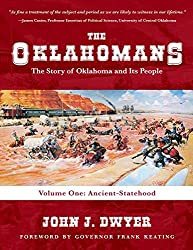
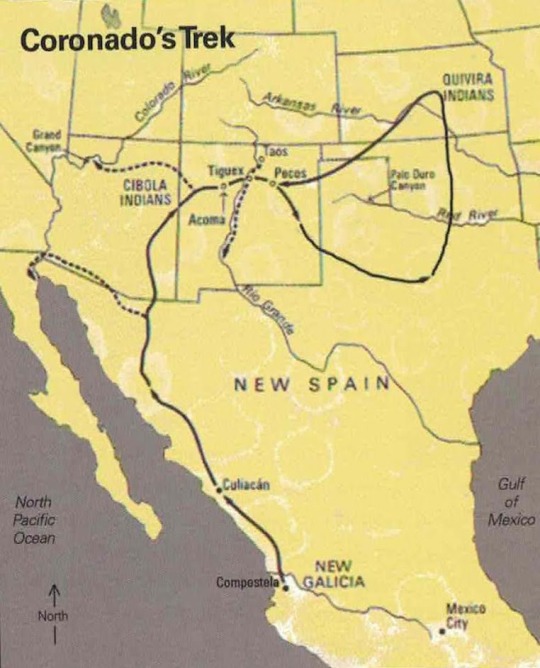

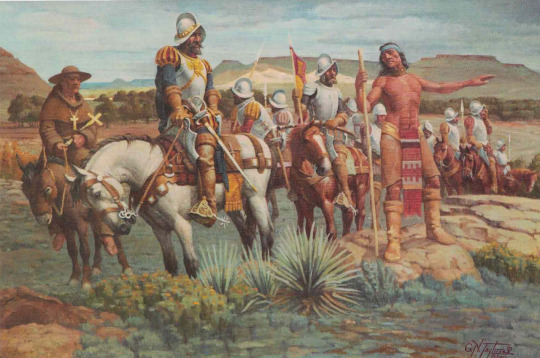

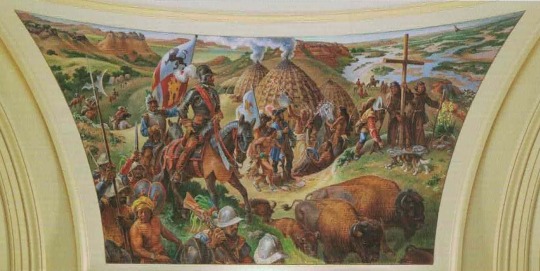
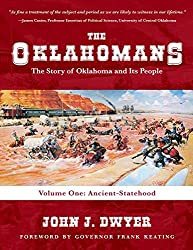

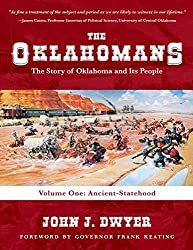







 RSS Feed
RSS Feed
